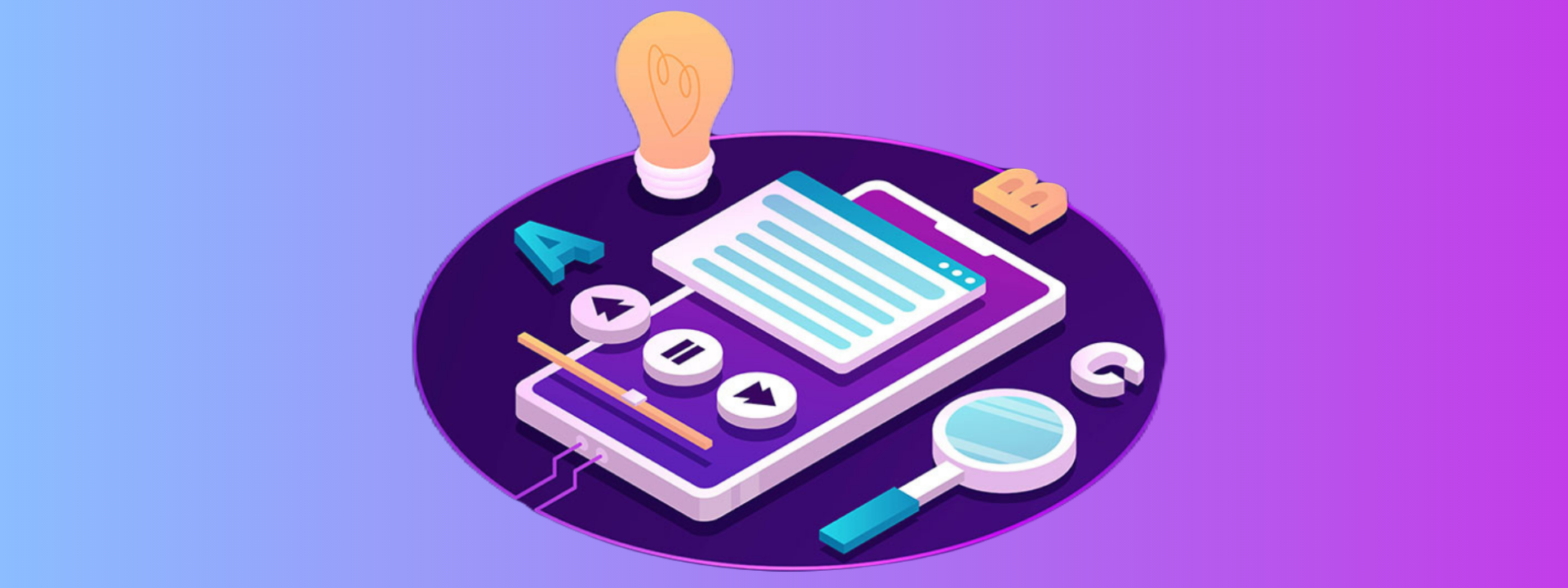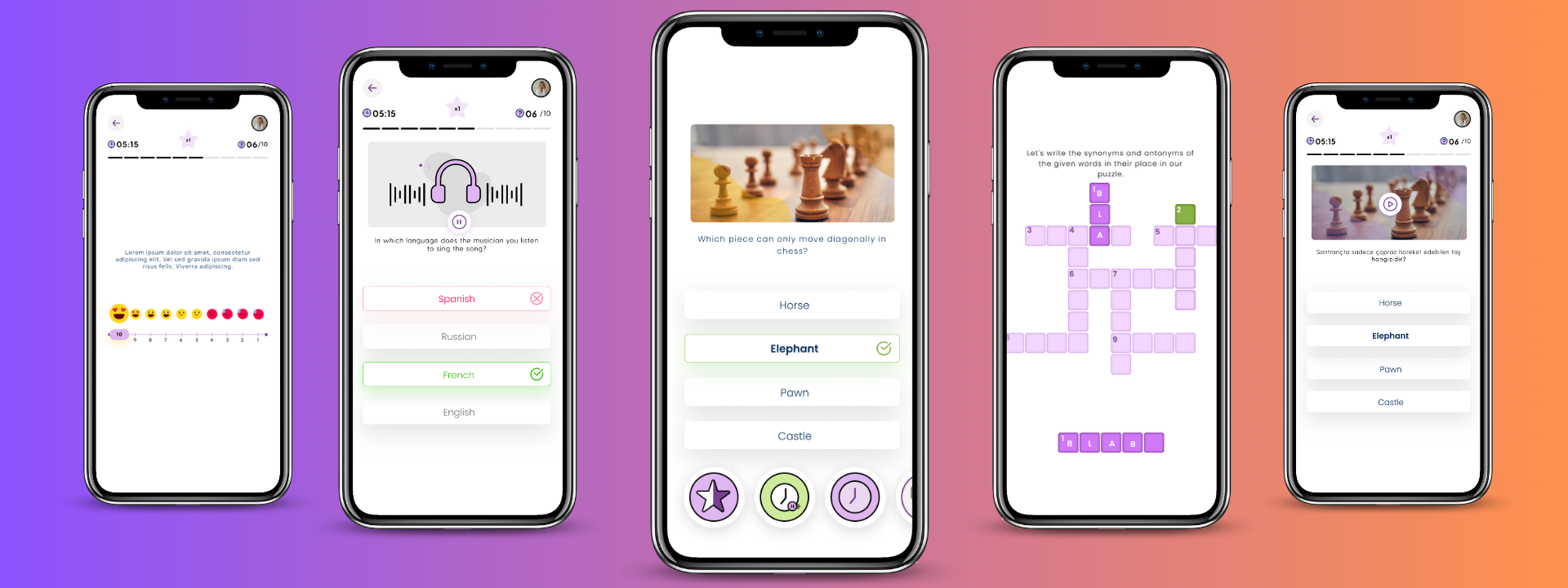In Learn
Enhancing MicroLearning with Engaging Question Types

In the ever-evolving world of education and training, microlearning has emerged as a powerful tool to deliver bite-sized, engaging, and effective learning experiences. To truly maximize the potential of microlearning, it’s crucial to incorporate a variety of question types. By doing so, you can captivate learners’ attention, promote active participation, and enhance their overall learning experience. In this blog post, we will explore the significance and benefits of using different question types in microlearning, and how it can help your gamified learning initiatives succeed.

Promoting Critical Thinking:
Diverse question types, such as multiple-choice, open-ended, true or false, and fill-in-the-blanks, challenge learners to think critically. These question formats require learners to analyze information, make connections, and evaluate options. By incorporating a range of question types, you encourage learners to apply their knowledge, strengthening their critical thinking skills and promoting deeper understanding of the subject matter.
Customizing Learning Paths:
Different learners have different strengths and preferences. Utilizing various question types in microlearning allows you to offer personalized learning paths. Learners who excel at logical reasoning may benefit from multiple-choice or true or false questions, while those who prefer creativity and self-expression can thrive with open-ended questions. By tailoring question types to individual learners, you provide a more engaging and effective learning experience.
Increasing Engagement:
One of the key advantages of incorporating varied question types is the potential to enhance learner engagement. Mixing up question formats throughout a microlearning module keeps learners on their toes, preventing monotony and fostering active participation. Interactive elements, such as drag-and-drop or image-based questions, add an extra layer of excitement and interactivity, making the learning experience enjoyable and memorable.
Reinforcing Knowledge Retention:
Using different question types at strategic intervals reinforces knowledge retention. Repetition and reinforcement are essential for learning, and by presenting information in various formats, learners are more likely to retain what they have learned. For example, multiple-choice questions can help learners recall facts, while open-ended questions encourage them to articulate their understanding, strengthening their memory of key concepts.
Assessing Progress and Feedback:
Microlearning thrives on instant feedback and measurable progress. Different question types allow you to assess learners’ comprehension and progress more effectively. Multiple-choice questions provide immediate feedback, allowing learners to understand their mistakes and correct misconceptions promptly. Open-ended questions, on the other hand, allow for more in-depth assessment and can help trainers gain insights into learners’ thought processes.
Fostering Collaboration and Competition:
By incorporating question types that encourage collaboration, such as group discussions or debate-style questions, microlearning can foster a sense of community and teamwork. Collaborative question formats not only enhance the learning experience but also promote the sharing of diverse perspectives and knowledge. Additionally, incorporating competitive elements, such as timed quizzes or leaderboard rankings, can boost motivation and drive learners to excel.

Introducing Lexivist: Your Gamified MicroLearning Companion
Lexivist is a cutting-edge gamified microlearning application designed to revolutionize the learning experience. With its extensive range of question types, Lexivist offers a diverse and engaging learning environment that caters to different learning preferences and styles. Let’s explore some of the remarkable features of Lexivist:
Comprehensive Question Library:
Lexivist boasts a vast collection of multiple choice, audio, video, visual, puzzle, and emoji questions. This rich variety ensures that learners experience a well-rounded and captivating learning journey.
Personalized Learning Paths:
Lexivist intelligently adapts to individual learners, tailoring the content and question types to match their unique needs and progress. Learners can embark on personalized learning paths that optimize knowledge acquisition and retention.
Gamified Progress Tracking:
Lexivist transforms the learning experience into an exciting game-like adventure. Learners earn points, badges, and rewards as they progress through the microlearning modules, fueling motivation and engagement.
Interactive Feedback and Insights:
Lexivist provides instant feedback and performance insights after each question, allowing learners to gauge their understanding and identify areas for improvement. This actionable feedback promotes continuous learning and growth.
Collaborative Learning Opportunities:
Lexivist fosters a sense of community by enabling learners to engage in group activities and challenges. Learners can collaborate, compete, and share knowledge, making the learning journey more interactive and social.

Start your gamified microlearning adventure today with Lexivist!
Incorporating diverse question types in microlearning applications like Lexivist is a game-changer for both learners and organizations seeking to optimize knowledge retention and engagement. By leveraging the power of multiple choice, audio, video, visual, puzzle, and emoji questions, Lexivist creates a dynamic and interactive learning environment. Embrace the future of microlearning with Lexivist and empower your learners to embark on an engaging educational journey like never before.


